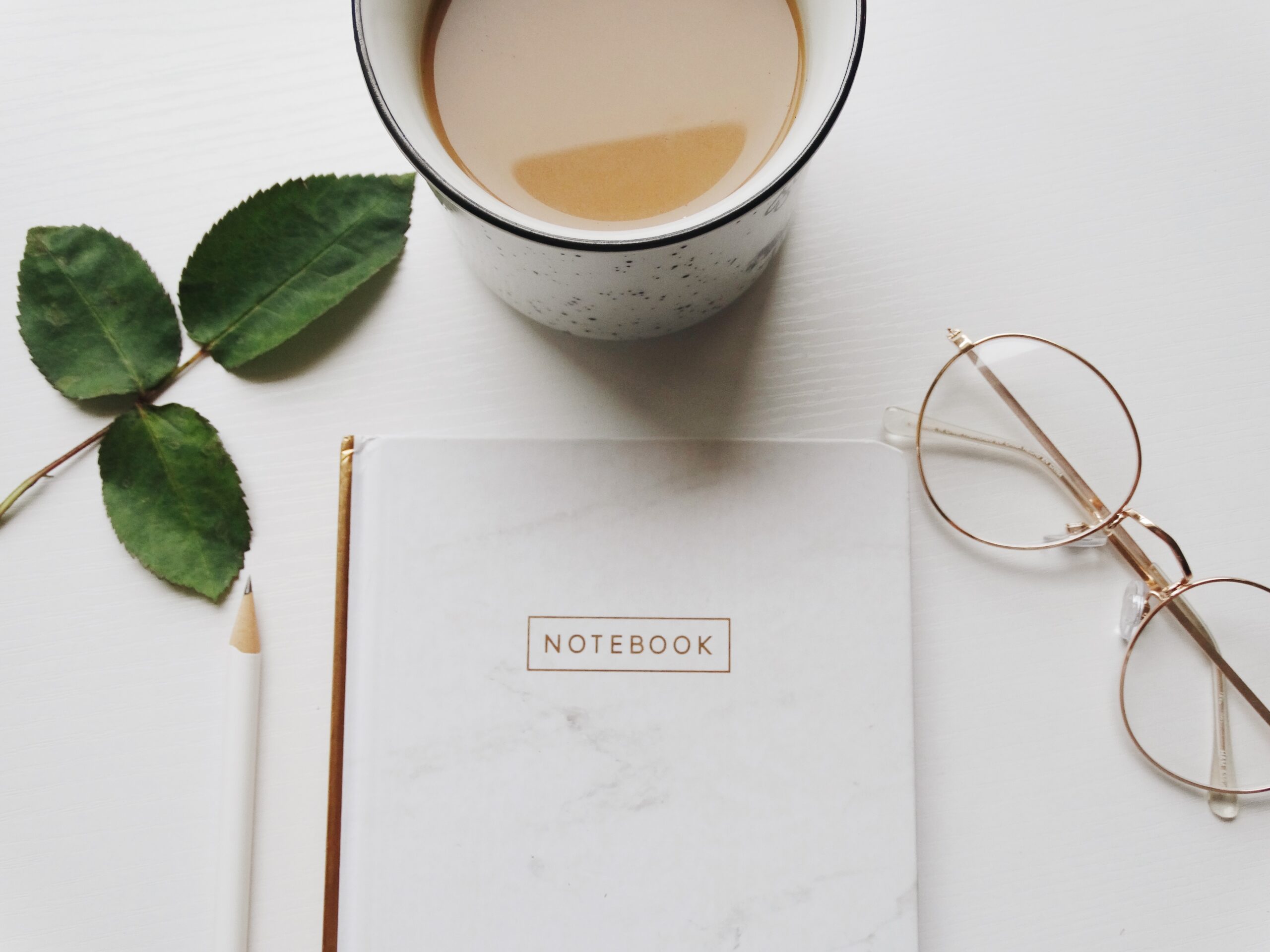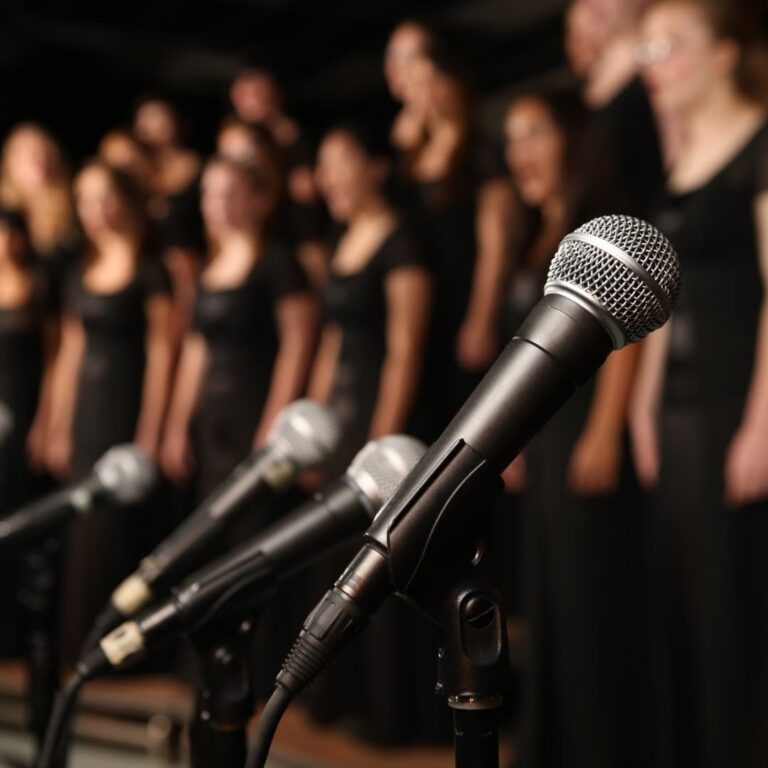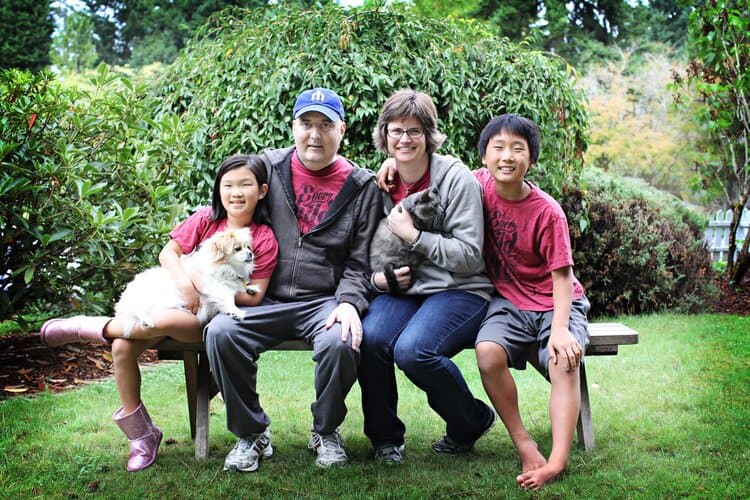How to Journal: A Widow’s Therapeutic Path to Process Grief
In the midst of grief and the complex emotions that follow, finding a way to express yourself can be a challenge. Explore how to journal for widows and discover the way words can become a powerful tool in processing grief and unveiling hidden emotions.
Whether you’re looking for a creative outlet to navigate your emotions, learning how to discover new insights about yourself, or interested in creating a lasting legacy for your loved ones, writing is a powerful tool for self-reflection, healing, and personal growth.
In this episode, we share the profound impact that journaling can have on the path from grief to renewal. We discovered that journaling, memoir writing, and even blogging played a transformative role in our healing process.
Key topics discussed:
- The therapeutic benefits of journaling and writing as a means of processing emotions and navigating grief
- The importance of leaving a legacy through writing, whether it be memoirs, letters, or personalized books for loved ones
- The power of sharing your story and experiences to help and inspire others, whether through blogging, publication, or online platforms
Join us in understanding how the act of writing allows you to honor your experiences, recognize your strength, and rediscover who you truly are.
Listen to Full Episode
Links + Resources From This Episode
This post contains affiliate links. Please read our affiliate policy for more information
- Melissa’s book – Filled With Gold: A Widow’s Story
- The Artist’s Way by Julia Cameron
- Blurb – free bookmaking and design tools
- Medium– Kim’s article How Would You Handle a Death Sententce?
- Substack
- Follow us on Instagram and subscribe to our YouTube channel.
“Journaling isn’t about perfect grammar or eloquent words. It’s about you. It’s about your feelings and your healing journey.”
Episode Transcript
Jen: Hi. It’s Jen with my wonderful co-hosts, Kim, and Melissa. Welcome back to the Widow Squad podcast. Today, we’re flipping the pages to a truly healing chapter; journaling for emotional health.
You know, when words fail us, sometimes writing can help us express that storm inside. So let’s dive in and discuss how picking up a pen and a journal can be a step towards moving forward as a widow.
Melissa, let’s start with you.
Different Paths, Common Threads: Unique Approaches to Writing for Widows
Melissa: My experience with journaling is that I’m not a natural journaler. I journaled sporadically as a kid and in my teen years and young adult years, but not it was not a regular practice for me.
When Dave died, I just felt like it was really important to journal the day-to-day things that were going on because it was such an extraordinary experience, just an unusual one. This has never happened to me. And I had kids. I wanted to document their experience more, kind of start with them. But it wasn’t even like journaling. It was writing down more of, like, scheduling and all the tasks because it was just me doing all the things. And then it morphed into a little bit around my feelings because again, I’m not super tapped into my feelings at that point.
So, I originally kind of started out with scheduling and being organized and then it kind of morphed into, gosh, what am I observing about my kids and how they’re feeling or how I think they’re feeling. And then it, again, morphed into, well, what’s going on with me?
I came across this really cool guided journal. It was, like, heavily guided prompts because I’m not good at blank pages. I really needed something to kind of guide me into what I was feeling. I think it was like an angel journal or something like that. It was specifically for grieving. It wasn’t for widowhood, but grieving loss of a person.
I thought that was pretty cool because the prompts were kind of around a memory or, like, tell us about the first time you met this person or tell us about a really fun outing you had, and it wasn’t specific to a partner. So, some of the prompts didn’t apply, but that was really helpful for me just to get in the habit of writing because I was not in the habit of writing, other than lists and schedules and how I think my kids are and all the things.
That was a game changer for me because I felt like I was going to lose my memory of Dave, because I was in shock. And we know what shock does to our brain, and I was starting to feel like, oh, what if I don’t remember how he laughed? I couldn’t remember certain things, and that scared me because, well, at the time, it was just over a year that he died and the details were fuzzy. Why is that happening? And so that really scared me. This was a great way for me to kind of write down my memories of him and how I felt about him and my sadness and my grief. I would just skip over the parts that just didn’t really apply.
Dave died in 2011, and I then started writing my book in 2016 and I published it in 2017. And so, based on that angel journal, I was able to reconstruct some of my memories because this was, you know, five years later, and some of your memories get fuzzy. Some are really clear, and some are not. It was great that I was able to go back to those journal pages and then kind of formulate our story because my book is our story and then it morphs into my story after he died.
So, yeah, I don’t really journal a ton now. I will journal if I feel super stuck on something. If I’m ruminating over something and I can’t talk it out and I don’t feel like anybody will understand, I’ll journal. If I think my higher self will understand. I know that’s a little woo woo, but, yeah, I feel like then I can get my thoughts down on paper. Usually, I’ll find an answer in there. Sometimes not, but at least it’s out of my head. I mean, that’s the whole thing. If it’s all up in your head, and then if you get it on paper, it’s kind of out of you, and it’s nice to kind of have that out of you.
I really wish I was like, I love journaling! But that’s not me. I mean, I will try it. Have you heard of The Artist’s Way by Julia Cameron? It’s a great book. I tried to do the morning pages where you free write for three pages or half an hour or something like that, and I would get so stuck on punctuation and grammar, and free writing is not about that. Free writing is just whatever. It doesn’t have to make sense. It just has to get out of your head, and I just could not get over that concept. I had to write and complete sentences.
Kim: I’ve tried to do The Artist’s Way too, Melissa. I understand your pain. It’s like, you just start writing and then thinking, this is stupid. Why am I writing this stupid sentence on this stupid piece of paper? Because I can write about anything I want to write about. But it’s lots of just confusing thoughts and whatever, so I like to have a little more of a strategy.
Melissa: Yeah, free writing is just not my comfort level. I like to have boundaries. Like, you know, how dogs like to be in crates? I like to have safe little walls around me, and that for me is punctuation and grammar.
Kim: I feel you. That makes sense. I love it.
Melissa: So that’s my experience.
Jen: It gives you a sense of control.
Melissa: And I’m all about control. So, yeah, that’s my experience.
Jen, what about you? What’s your experience with journaling?
Journaling: A Gateway to Healing and Recovery for Widows
Jen: Well, I am the total opposite of you. I really dove into it. I did. And I’ve been a journaler my whole life, but kind of off and on. And when I lost Brent, it was just such a perfect outlet for me. It was the perfect thing for me to turn to because I kind of felt like I needed solitude. I was just withdrawing in. I was not a person that was looking to have a lot of people around me while I was processing what I was going through. And so, for me, journaling was my place. It was my time to get all those thoughts out. That was one thing that I found to be so helpful is that, you know, we have all of these thoughts. We have our support, and we have friends and family and people that will listen to us, but we also feel like we are burdening them, I guess, with our repeated stories and repeated thoughts.
I know the thought that kept going through my head was, why? You know, why did this happen to me? Why? Why me? Why him? Why? Why? I don’t want to say that to everybody that I know. Like, the person on the street, the, you know, the grocery girl, whatever, why did this happen to me? No. My journal was my place to go for me to just repeatedly process those things so that I didn’t have to talk to other people and bring them into my daily pain, I guess. You know, it was private. It was just for me. Those things that I was feeling guilty about, again, things that you don’t want to have to share with other people. The basic things. Right? Like, I actually laughed today. I saw something funny, and I feel like I shouldn’t have laughed. Like, why am I laughing?
Those are the things that I would write. The thoughts that I had that I was almost embarrassed to share with other people. Thoughts about the afterlife or, you know, where is he? What is he doing? You know, you kind of feel like you’re going crazy. Right? Is he watching me shower right now? Is he here? Because I feel he’s here, and I just don’t want to say that to anybody else because they might think I’m crazy. So, those were some of the things that I was writing down, just kind of everything across the board. It was just such a great outlet for me to get all of those thoughts out. It was such a release.
I know you just talked about Julia Cameron in The Artist’s Way, and I read that book. It was probably a year or even two years after becoming a widow, but I loved it. I was already doing the morning pages stuff. I didn’t even know that’s what it was called, but I was already doing it. And I had no boundaries. I’m just like, here it is. All the thoughts. I don’t care. It’s out there, and it’s not in my head anymore, and it’s not stuck anymore. So, I feel so much better. It’s such a relief to release, you know, to have it on paper and out of my head.
One thing that I know Julia Cameron talks about in her book also is that free writing like that just becomes a really good self-awareness tool as well. You start writing about your day, or let’s say you’re doing your morning pages and you start writing about things that you did last night or, you know, you wake up and you write in your morning pages, I’m feeling really crappy this morning because I had three glasses of wine last night, and I was having trouble sleeping. So you’re writing and you’re writing and you’re writing, and then you can go back and look at that and you start to see these patterns of your behavior where you can recognize some things that maybe you didn’t even know that you were doing that you might want to focus on changing. It’s a really good self awareness tool. Just to kind of track your own behavior and just rediscover who you are in this moment. What is going on with you? It’s just a good way to check-in with yourself and see if there is anything that you could change that you might need to change that you weren’t even really aware of that was destructive behavior or bad behavior or something like that.
Kim: That’s a good point because when you’re honest with yourself in your journals, because it’s personal, then you can really dig a lot deeper. But you have to be honest about it so that there’s no sugar coating or whatever when you’re journal writing. So that’s a good point. You can learn a lot about yourself when you are actually being honest about it.
Jen: Yes. So, I mean, that was, like, another benefit. You’re rediscovering who you are. You’re kind of learning who you want to be. You want to be a person that has three glasses of wine at nigh or don’t you? Does it make you feel worse? You don’t really notice sometimes that you’re doing these things. And so, you know, just journal. I just think that there are so many benefits besides the things I just talked about.
It was my “me time,” too. Like, I had to make time for myself. I had Claire. She was really little. She was two going on three. I didn’t have a lot of “me” time. And so when I did have that small chunk of time, that was the most productive thing that I could do with that small chunk of time for me was to journal. I really, really loved it. But again, like you said, when you’re staring at a blank page though, sometimes you’re a little bit stuck, and I did have some journal prompts that really kinda helped me along the way.
I want to share some of those prompts with you guys. I don’t know if you’ve heard of these. Some things to kind of get you started. So for all the listeners out there, Here are a few of my favorite journal prompts that I just wanted to share with you guys:
1) If I could make a promise to myself, what would it be?
And that’s a really good one because you can kind of go all over the place with that. You can talk about those bad behaviors and the things that you want to change. And you can talk about things that you want to work on. Like, I’m gonna promise myself that I will try to be a more confident person or I will try to put myself out there. You know, you can kind of take that question and make it your own.
2) I am so sick of…blank.
Kim: Everything!
Melissa: That’ll fill your whole journal.
Jen: You could go on for days.
3) What did I accomplish today?
And this is just a really good, reflective one. If you’re doing this in the morning, what did you accomplish yesterday? You know, that kind of thing. But that just helps you kind of see that you are making some progress and that you are getting things done and you are taking steps every day, even if they’re small steps, you are accomplishing goals and getting things done. So that’s just a really good one to always go back to you for a little positivity. Right?
Melissa: Yes.
Jen: So those are just three easy ones to kind of get you started. Three that I really like to turn to when I’m faced with a blank page.
Melissa: That’s a good one because we hear in the Widow Squad comments like, “I don’t feel like I’m getting anywhere” or “I should be doing more.” And using that last prompt, what did I accomplish today and going back into your journal, you can read like, wow, I accomplished a lot! A ton. Like, even keeping a calendar, a paper calendar, you can go back and look at everything you’ve done this past year. And here I am thinking I haven’t been doing anything. That’s a really good prompt.
Jen: So that is my experience with journaling. I highly recommend it, of course. I tried it. I tried to keep up with it now. Again, it’s always a practice, and it’s always something that I work on too, but I really love it.
So, Kim? What about you?
From Memories to Legacy: The Transformative Power of Putting Words to Paper
Kim: Hmmnn…let’s see. I have good intentions. I have probably seven or eight journals on my bookshelf here that are still blank because I have, first of all, terrible handwriting. So I can’t even read my handwriting. I’ve tried journaling on these beautiful leather-bound journal pages and it looks like crap. So, anyway, one big issue is that my handwriting is really bad. And I’m usually thinking faster than I can write. I’m just writing really fast, and I just try to get everything out. And it doesn’t look good. I’d rather buy those college-ruled notebook pages because it’s cheap. I can ruin those and I can rewrite in them and scratch stuff out. I don’t like to take an actual journal and muck it up, you know, I just don’t. That’s just me. So I have these blank journals on my bookshelf. They’re beautiful. I like looking at them, but they’re blank. There’s nothing in them.
I don’t want anyone reading or seeing my journal or anything that I’ve written, because if you knew what went on in this brain, you might have a different idea about Kim Murray as a person. Okay? There’s lots of schizophrenic stuff going on up in there! So I want to write what I want to write and then I take the sheets and then I put them through my shredder. I get out what I need to get out and then I shred them. I don’t keep my journals. I don’t want anybody else to read anything that I’ve written. So, I have a slightly different relationship with journaling.
I’m actually not as much of an avid journaler as I am just a writer in general. Because when I’m writing things, whether it’s for publication or family or whatever, I’ve already gone through several iterations of it before it gets to the final piece. So that satisfies the control part of my Type-A personality. I want it to look good before it goes out in the world. So I think I would probably describe myself as more of a writer and not a journaler. I have done it. And to Melissa’s point, when you were talking about, you know, really trying to understand what some of your more confusing or deep, deep grief feelings are, I’ve definitely used journaling for that. I definitely have to write out things and try to make sense of it in a journaling space. So I have done that before.
When my kids were little up until they were 18, I wrote a letter to my kids every month. Fom the day they were born, from the month they were born until they turned 18, I wrote a letter to them every month. It was like a chronological history of their lives, basically, but that was just me writing to them. I would encourage people to consider not just journaling, but writing if you want to write a letter or you want to keep a chronological order of things that are happening in your life or your kid’s life, because that’s therapeutic too. That’s helpful too. That helps you process emotions too.
A lot of those letters before Mark died were all about all the things we did together as a family, which were a great reminder for my kids of their past, the time that they got to spend with their dad. And then after, it was more difficult to write those letters because obviously, everything changed. I would try to put a little bit of a positive spin on most of the letters that I was writing. And then after, Mark died and especially during the teen years, I had nothing positive to say. There wasn’t too much in those monthly letters in the teen years, but it is what it is. What I ended up doing was just actually taking those letters and putting them in a book. There’s a software program called Blurb, and it will take your text and pictures and turn it into a book. So that’s what I did for my kids. I just turned their letters into a book. This was all very therapeutic for me. That was all me giving them as much information as I could.
When they were little, they were going to forget a lot of the things that we did together. Then when we went through their dad’s death and the teen years and those awful times, it’s still their history, and they can go back and read those letters. And they do go back and read them now. So they’re adults now, but they’ve gone back and looked at some of those letters and thought, wow, I didn’t realize that we went through all the things that we went through and did all the things that we did. It’s a nice reminder. I’m just throwing that out there so people get some different ideas.
I think we sometimes get hung up on the journaling part. Like, you have to have a leather bound, blank piece of paper, and you have to write in it. You don’t. It could be any number of different things. I actually had a blog back before Mark died. When the kids were little, I would just write about things we were doing, and it was called Life Isn’t Rocket Science. And I would just write my thoughts and whatever out into the world. This was way back when blogging was just kind of starting. So, I shut that down after Mark died. But, anyway, I turned those blog posts into a book for the kids too. Again, another avenue of writing. It doesn’t always have to be just a journal. You can get your words and feelings out any number of ways.
Maybe you do have kids and you want to write letters for them. Maybe you want to interview your parents and have them write about their lives and that could be something you could pass down to your kids. All of these are writing centric or writing related. I think it’s important to look at all the options. You could write for publication. You know, you could actually write something and then try to send it out to get it published somewhere. You don’t have to have someone else publish it. I mean, you could publish it on Medium or Substack. There are paid newsletters out there.
You could start your own blog. Right? You know, I started Widow 411 in 2017 because I wanted to write about my experience. And I wanted to share that with other widows, because at the time, I was still learning about what was working and not working for me. So what I would share were things that I needed to learn as well as what I wanted the widows who were reading it to learn if that makes sense. I was learning along with my readers back then because I just had a lot of things that were confusing and a lot of things I wanted to say. So I just started a blog. No one has to give you permission to start a blog. You just get a domain, and you just start writing a new post.
I have articles that were published on Medium. I’ve had articles published in Chicken Soup for the Soul, the Detroit Free Press, parenting magazines, travel magazines. It doesn’t matter where you go or what you write about, it just matters that you write.
So that’s my thing. I think we sometimes, like I said, get stuck on what the “journaling” part is. We hear it a lot that “you should journal.” You should journal. You should journal. You should journal. And I love all the prompts, and I’ve used them because I don’t like a blank page either.
But writing can be just as therapeutic. And if you have something to say and you have something to share, why not try to get it out there into the whole world? Maybe even go for publication? Maybe try to get some information out there and help another widow. You could start your own blog. You could write for Medium, you could write for Substack, start a newsletter, whatever you want to do.
Those are some of my tips.
Just write.
Melissa: And it doesn’t matter if you’re eighty years old and you’ve never written anything, Everybody has a story. Everybody has some kind of extraordinary story that somebody needs to hear to help them feel like they’re not alone. There are writing classes all over the place, writing your memoir or storytelling. My mom’s eighty-six years old, and she just started writing her life story. And it’s been fascinating for her from what she tells me is that she is remembering things from years ago, and she’s processing childhood stuff. It’s been a really helpful tool for her, and it just kind of started out, well, I just want something to do, and I have an interesting story. So I’m gonna take a class, and now she’s writing books. She’s writing, like, these bespoke books for each of us kids and nephews and nieces and stuff because we want to know her story.
Kim: I love that, and I love that she’s doing that for you guys because I think the more you can leave your kids about your life is, like, I don’t even know the word. It’s not replaceable. This is why those letters were so important that I was writing to my kids before Mark even died before he got sick. I didn’t know how important those were going to be to my kids, but I’m glad I did it. I’m just saying if you’re ever thinking of doing something like that, just do it. Like you said, Melissa, it doesn’t matter how old you are. Just start the writing process.
You know, if you ask yourself questions like, one of the most popular articles I have on Medium is called, How Would You Handle a Death Sentence? So that was a question that I thought to myself. If I was given a terminal cancer diagnosis, what would I do? But the article was, could you handle a death sentence the way my husband handled it? But it was me asking that question. What would I do? I don’t think I would have done what he did. This is what he did. I’m not sure I would have done it that way because I don’t know what I would do if I was told I was going to die. Like, how do you wrap your head around that? So, you can ask yourself questions. Like, what would I do in this situation? How would I handle that situation? Just start writing about your experience that way, too. Lots of different ways to do things. Lots of different ways to express yourself through writing.
Wrap Up
Melissa: Well, there you have it. We’ve talked about how writing has played a role in navigating our grief and boosting our emotional health. If you’ve never tried journaling or writing, we hope our chat might encourage you to give it a shot. It’s not about perfect grammar or eloquent eloquent words. It’s about you. It’s about your feelings and your healing journey.
If this episode touched a chord with you, please share it with others who might need that nudge to start writing their hearts out.
And remember, we’re here with you through the tears, the smiles, and yes, the pages too.
Until next time, take care of your hearts and don’t forget you’re stronger and more capable than you think.







